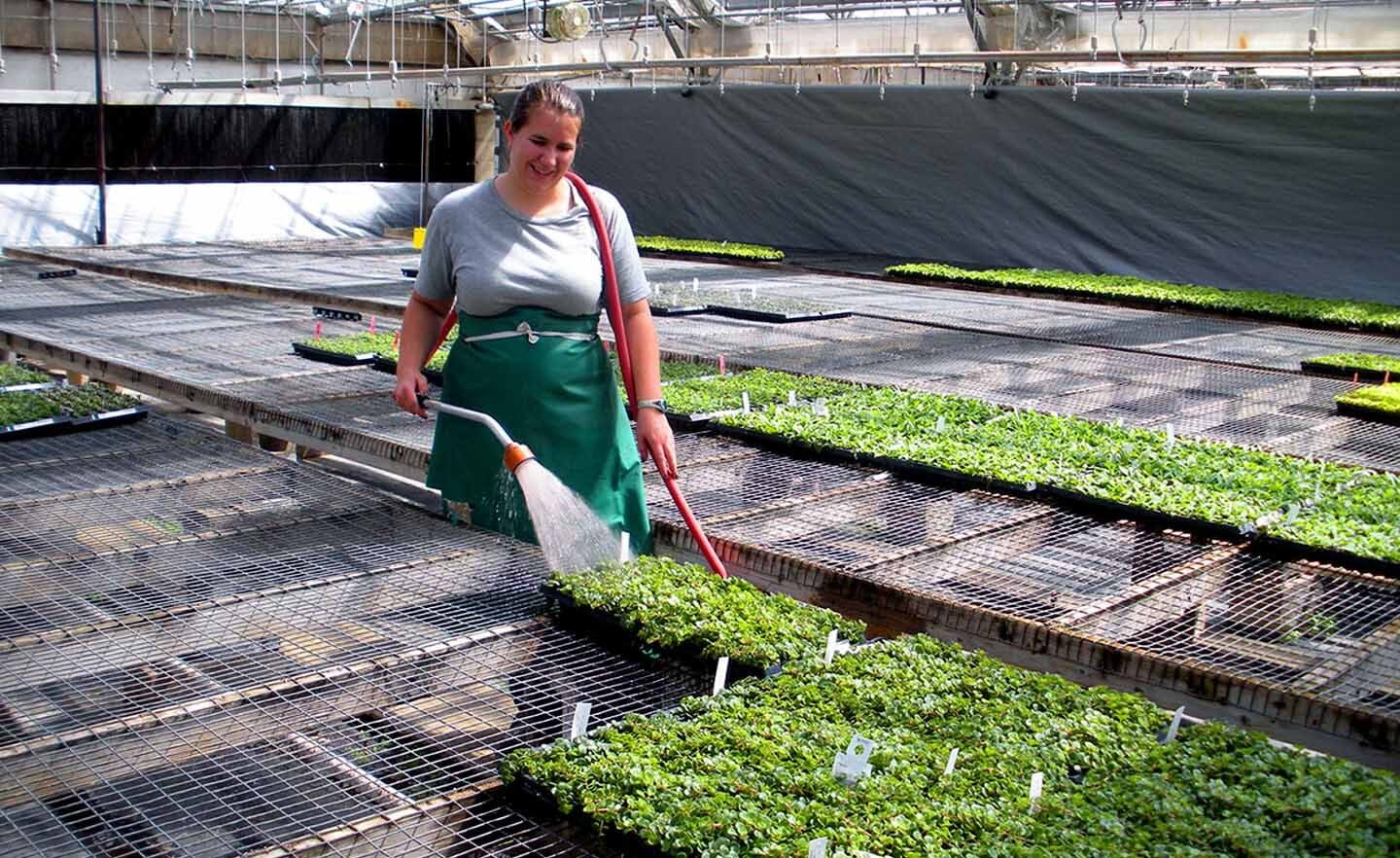

By: Ashlie A. Tagawa Mohr
Human Resource Manager
October 1, 2019
At Tagawa Greenhouses, we are proud of our internship program, and over the past 20 years, we have hosted both domestic and international students for our six-month to one-year internship programs. We believe that the future of our industry depends on the future generations. The goal of our internship program is to really show students what it would take to “make it” in the world of horticulture, and to start building relationships with the future leaders of our industry.
The internship program starts with our Intern Committee, a group of six leaders from different departments that help screen and make suggestions for the internship program. We have had the pleasure of participating with the American Floral Endowment Internship program for more than 10 years, and even today I would say 80% to 90% of interns come through the AFE program. We also have contacts at universities who will often refer students to us for intern positions.
Because our intern program starts in January, our search for interns begins in about September or October as students begin planning for their spring semester. While we typically accept interns who are enrolled in an accredited university or college, I have found that age or background isn’t really a deal breaker when selecting interns. We tell interns directly that our internship could benefit those seeking careers in horticulture, environmental science, landscaping, or production management, which means we don’t usually see a lot of other majors go through our program. However, we would be open to anyone who has some level of interest in our business or what we do.
Candidates who are selected as interns are sent a Program Book that includes a little information about the company and each of our departments plus a detailed calendar outlining how much time interns spend with each department. Before the program even starts, we help coordinate their arrival to Colorado and any living arrangements if necessary. On-site housing is provided to interns so hopefully they can focus less on finances during their time with us and more on the program itself.
The internship program begins with orientation with our human resources staff. Then throughout the program, the interns meet with our intern coordinator to help contextualize what they are learning, provide feedback, and discuss any issues they may be having.
Our interns spend at least six to 12 weeks with our production growers, honing their horticultural abilities and attending to both young plant and bedding products. However, the exciting part of our program is that interns spend anywhere from two hours to two weeks with every other department throughout the organization, including our administrative groups and top-level managers. Our goal is to challenge students to begin thinking like managers, and have the opportunity to speak one-on-one with our business leaders, take management training, and tour our different facilities. In the end, we want to show them how their horticulture or science degrees are translated into real-world experience.
What they give back to the company is amazing. I have found that the best interns have the drive to learn, adapt and grow. Just as with any manager or employee, interns who are able to challenge themselves to learn and apply their knowledge tend to challenge us to grow and learn alongside them. When you have an individual with fresh eyes touching every department in the company, they start bringing to light what we could do to improve our processes and how we train new employees. My grandfather says it’s often not about what you know, but who you know. Interns bring value to our company not only when they go through our program, but also after they graduate, whether that is in an employment context if they apply for production or management-level positions, or when they become our partners, vendors, consultants, or customers.
If you’re looking at creating your own internship program, it’s always good to make sure there’s a lot of buy-in across the organization to support the program. Not only do we have our Intern Committee, but I create the detailed schedule based on the existing work load of each department. Then I contact each of the department managers to make sure they are ready. Because we have good buy-in, managers are usually very open and ready to describe to students what they do.
Setting expectations from the get-go and having an open conversation amongst your teams as well as with the interns is probably the best way to make it effective for everyone. It’s important for the students to know what an internship can offer them. In turn, we need to think about what kind of interns we want in our organization.
Some questions to ask yourselves may include:
- If I could go back to the beginning of my career, what would I want to know to be successful in my line of work?
- What opportunities are in our organization that could be missed by students if they didn’t realize they were available?
- What do we want students to think of our company and share about our company?
- What kind of students are we looking to accept within the program?
- What kind of demographic would be interested?
- What kind of program would best serve the students or those wanting to join our business?
Definitely the thing to avoid with internship programs is treating the intern just as another employee in the organization, or assuming all interns will have the same experience. Each student is a little different and will gain different insights about our work and their careers when spending time with us. And that in itself is the beauty of having an internship program, in my opinion. As long as we are willing to be open and share our experiences with interns, they tend to share their experiences with us as well. Every intern is a fresh pair of eyes that inspires us to be more than we are today, and gives us the opportunity to build relationships with the people who very well may be the future of our industry.



